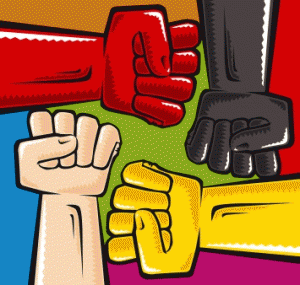 Many white people generally think racism against blacks isn’t much of a problem anymore; in fact, they see racism against whites as a bigger problem now. Those are the results of a new survey published in the May issue of Perspectives on Psychological Science, a journal of the Association for Psychological Science. The researchers think that whites see racism as a zero-sum game; if there’s less racism against one group, there must be more against another.
Many white people generally think racism against blacks isn’t much of a problem anymore; in fact, they see racism against whites as a bigger problem now. Those are the results of a new survey published in the May issue of Perspectives on Psychological Science, a journal of the Association for Psychological Science. The researchers think that whites see racism as a zero-sum game; if there’s less racism against one group, there must be more against another.
Michael I. Norton of the Harvard Business School and Samuel R. Sommers of Tufts University wanted to compare the attitudes of white people and black people about racism. In their previous research on political correctness, they learned that whites felt oppressed by the discomfort they felt when they felt pressured to avoid certain words. They found that this was connected to a feeling of oppression that some whites had about policies like affirmative action.
The researchers asked 208 black people and 209 white people recruited by an online survey research company to indicate “how much you think [blacks or whites] were/are the victims of discrimination in the United States in each of the following decades,” starting with the 1950s and proceeding through the 2000s.
Blacks and whites agreed that racism against blacks has gotten better since the 1950s (although blacks still see anti-black racism as a much bigger problem than whites do). The main difference was in ratings of anti-white racism; whites perceived this as increasing steadily, mirroring the fall in anti-black racism, while blacks didn’t think it was a problem. According to the study, white people on average think that in the last decade, anti-white racism was more of a problem than anti-black racism.
“If you look at any metric you might want to use—childhood nutrition, educational opportunities, salaries—black people in America continue to have worse outcomes than white people,” says Norton. “But the feeling of being discriminated against is a very powerful feeling for anyone, whether accurate or not.” People should judge racism by statistics, he says, but instead they judge it by their own personal experience. As a result, anyone who feels that they are losing out because of their race may have the perception that they are being oppressed.
Also, while the fact that we now have a black president is a sign of enormous progress, Norton says, “many whites take that as strong evidence that racism has been solved, rather than as a sign that progress has been made.” The data shows averages; many white people still think racism against blacks is worse than racism against whites. But, on average, white people seem to think it’s tougher to be white in America now than it is to be black.
Source: Association for Psychological Science
